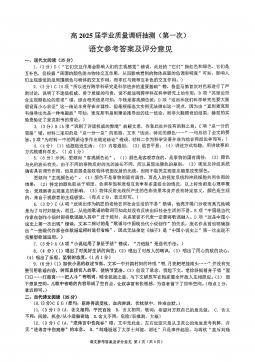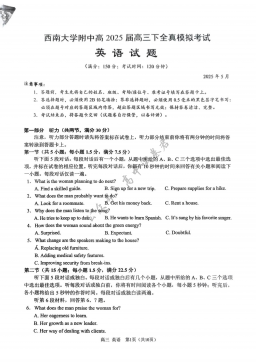
that had lionized him then reviled him now, and English tourists took delight in pointing him out when they caught glimpses of him
on the streets, and the women frequently threw theatrical faints.
Shelley was far less famous, though his offenses against propriety sometimes appalled even Byron. Only twenty-four, he had
already been expelled from Oxford for having written a pamphlet advocating atheism, had been disowned by his wealthy father,
and had deserted his wife and two children in order to run away with the daughter of the radical London philosopher William
Godwin. Godwin had not been pleased to see his daughter putting into all-too-real action his abstract arguments in favor of free
love.
Byron was doubting that Shelley would really be "glad of the surrounding water." The stone walls had to be leaky, and God
knew what kinds of damp rot a man would be subject to in such a place. Was it naivete that made Shelley say such things, or
was it some spiritual, unworldly quality, such as made saints devote their lives to sitting on pillars in deserts?
And were his condemnations of religion and marriage sincere, or were they a coward's devices to have his own way and not
acknowledge blame? He certainly didn't give much of an impression of courage.
Four nights ago Shelley and the two girls he was travelling with had visited Byron, and rainy weather had kept the party
indoors. Byron was renting the Villa Diodati, a columned, vineyard-surrounded house in which Milton had been a guest two
centuries earlier; and though the place seemed spacious when warm weather let guests explore the terraced gardens or lean on
the railing of the wide veranda overlooking the lake, on that night an Alpine thunderstorm and a flooded ground floor had made it
seem no roomier than a fisherman's cottage.
Byron had been especially uncomfortable because Shelley had brought along not only Mary Godwin, but also her stepsister
Claire Clairmont, who by a malign coincidence had been Byron's last mistress before he fled London, and now seemed to be
pregnant by him.
What with the storm clamoring beyond the window glass and the candles fluttering in the erratic drafts, the conversation had
turned to ghosts and the supernatural-luckily, for it developed that Claire was easily frightened by such topics, and Byron was
able to keep her wide-eyed with alarm, and silent except for an occasional horrified gasp.
Shelley was at least as credulous as Claire, but he was delighted with the stories of vampires and phantoms; and after Byron's
personal physician, a vain young man named Polidori, had told a story about a woman who'd been seen walking around with a
plain skull for a head, Shelley had leaned forward and in a low voice told the company the reasons he and his now abandoned
wife had fled Scotland four years earlier.
The narration consisted more of hints and atmospheric details than of any actual story, but Shelley's obvious conviction-his
long-fingered hands trembling in the candlelight and his big eyes glittering through the disordered halo of his curly hair-made
even the sensible Mary Godwin cast an occasional uneasy glance at the rain-streaked windows.
It seemed that at about the same time that the Shelleys had arrived in Scotland, a young farm maid named Mary Jones had
been found hacked to death with what the authorities guessed must have been sheep shears. "The culprit," Shelley whispered,
"was supposed to have been a giant, and the locals called it 'the King of the Mountains.'"
"'It'?" wailed Claire.
Byron shot Shelley a look of gratitude, for he assumed that Shelley too was frightening Claire in order to keep her off the
subject of her pregnancy; but the young man was at the moment entirely unaware of him. Byron realized that Shelley simply
enjoyed scaring people.
Byron was still grateful.
"They captured a man," Shelley went on, "one Thomas Edwards-and blamed the crime on him, and eventually hanged him . . .
but I knew he was only a scapegoat. We-"
Polidori sat back in his chair and, in his usual nervously pugnacious way, quavered, "How did you know?"
Shelley frowned and began talking more rapidly, as if the conversation had suddenly become too personal: "Why, I-I knew
through my researches-I'd been very ill the year before, in London, with hallucinations, and terrible pains in my side . . . uh, so I
had lots of time for study. I was investigating electricity, the precession of the equinoxes . . . and the Old Testament, Genesis . .
." He shook his head impatiently, and Byron got the impression that, despite the apparent irrationality of the answer, the question
had surprised some truth out of him. "At any rate," Shelley continued, "on the twenty-sixth of February-that was a Friday-I knew
to take a pair of loaded pistols to bed with me." Polidori opened his mouth to speak again, but Byron stopped him with a curt
"Shut up."
"Yes, Pollydolly," said Mary, "do wait until the story's over." Polidori sat back, pursing his lips.
"And," said Shelley, "we weren't in bed half an hour before I heard something downstairs. I went down to investigate, and saw
a figure quitting the house through a window. It attacked me, and I managed to shoot it . . . in the shoulder."
Byron frowned at Shelley's poor marksmanship.
"And the thing reeled back and stood over me and said, 'You would shoot me? By God I will be revenged! I will murder your
wife. I will rape your sister.' And then it fled."
A pen and inkwell and paper lay on a table near his chair, and Shelley snatched up the pen, dipped it, and quickly sketched a
figure. "This is what my assailant looked like," he said, holding the paper near the candle.
Byron's first thought was that the man couldn't draw any better than a child. The figure he'd drawn was a monstrosity, a

 2024-12-06 5
2024-12-06 5
 2024-12-06 12
2024-12-06 12
 2024-12-06 30
2024-12-06 30
 2024-12-06 27
2024-12-06 27
 2024-12-06 33
2024-12-06 33
 2024-12-06 14
2024-12-06 14
 2024-12-06 38
2024-12-06 38
 2024-12-06 18
2024-12-06 18
 2024-12-06 50
2024-12-06 50
 2024-12-06 31
2024-12-06 31








 渝公网安备50010702506394
渝公网安备50010702506394
